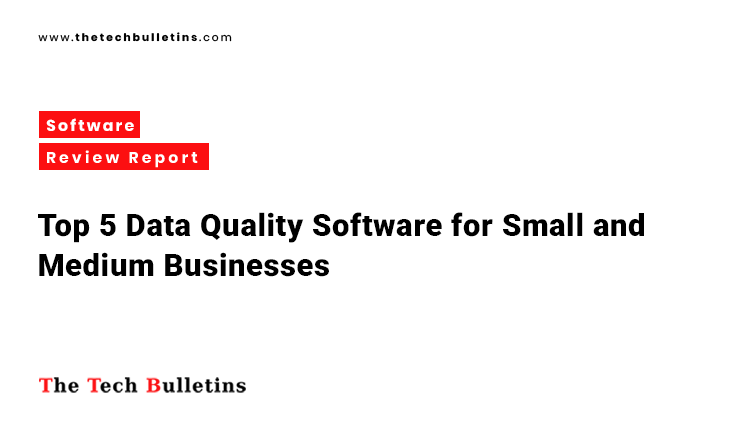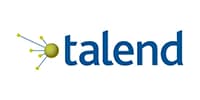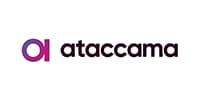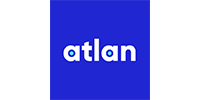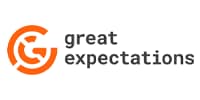Introduction
In today’s data-driven world, even small and medium businesses (SMBs) rely heavily on accurate, consistent, and trustworthy data for decision making, marketing, operations, and growth. But raw data often contains errors, duplicates, inconsistent formats, or missing values. That’s where data quality software becomes critical. For SMBs, investing in the right data quality solution can help reduce waste, improve analytics outcomes, boost customer satisfaction, and lower risk — but choosing the right one is challenging. Many tools are built for large enterprises, with steep learning curves, high cost, or overly complex architectures. In this article, we present a curated list of Top 5 Data Quality Software that are reasonably suited (or adaptable) for SMBs, along with a comparative lens to help you pick the right fit.
Methodology
To assess and compare data quality tools, our review uses the following criteria:
- Ease of Use — how quickly non-technical users or smaller teams can get started (onboarding complexity, UI intuitiveness).
- Core Features — data profiling, cleansing, matching/deduplication, validation, enrichment, monitoring, and remediation.
- Integration Capabilities — connectors, APIs, support for common data sources (databases, CRMs, cloud tools).
- Scalability — ability to grow as data volumes, number of sources, or team size grows.
- Pricing — accessibility for SMB budgets (free plans, tiered pricing).
- Customer Feedback — real user ratings, pros/cons, and user quotes from known review platforms.
We focus on tools that are relatively accessible (in terms of cost, deployment, or usability) and not only massive enterprise-only systems.
Top 5 Data Quality Software for SMBs
1. Talend Data Quality
- Data profiling and statistical analysis
- Rule-based validation & custom pattern checks (regex, domain checks)
- Data standardization, cleansing, and transformation
- Matching / deduplication and fuzzy logic
- Integration with Talend’s pipelines and rich connector support
Benchmark Performance
- Ease of Use: Moderate — Talend offers drag-and-drop interfaces (especially via Talend Open Studio), but some features require technical configuration
- Data Integration: Strong — deep integration with Talend’s connectors and pipelines
- Visualization / Reporting: Moderate — built-in dashboards are basic; often requires external BI tools
- Scalability: Good — handles moderate data volumes, scalable when combined with Talend’s platform
Pricing
- Free Plan: Yes — Talend Open Studio (community / free) provides entry-level capabilities
- Starter / Professional / Enterprise: Available — enterprise licensing is per seat or subscription
- Free Trial: Yes — enterprise editions often offer trials
Customer Reviews
- Average Rating: ~4.3 / 5 on G2 for Talend Data Quality reviews
- Pros: “simplifies the process of profiling, cleansing, and standardizing data… gives data accuracy and highlights issues”
- Cons: Some first-time users find the workflow complexity challenging; advanced features may require deeper technical skills
- Customer quote: “First of all, it is very simple and easily understandable to even a beginner.… The data console is super helpful …”
2. Ataccama DQC / Ataccama ONE (Data Quality & Governance)
- AI-driven automation for rule generation & anomaly detection
- Data profiling, classification, and observability
- Data cleansing & remediation workflows
- Data lineage, catalog, and metadata integration
- Reusable rules library and cross-pipeline reuse
Benchmark Performance
- Ease of Use: Good — once configured, many automated workflows reduce manual effort
- Data Integration: Strong — supports many source types and hybrid deployments
- Visualization / Reporting: Good — integrated dashboards, lineage views, and reporting interfaces
- Scalability: Excellent — built to support enterprise growth while manageable for SMBs
Pricing
- Free Plan: No (primarily enterprise licensing)
- Professional / Enterprise Tiers: Yes — pricing depends on scale and modules
- Free Trial: Yes (often via demo or evaluation)
Customer Reviews
- Average Rating: Users rate Ataccama fairly highly (for example, 8/10 or “likelihood to recommend” 8/10 in some reviews)
- Pros: Unified platform, automation, strong integration and metadata capabilities
- Cons: Steep initial learning curve; complex deployment overhead
- Customer quote: “There’s definitely a steep learning curve but once you get over the hump, the tool works great.”
3. Informatica Data Quality / Informatica Intelligent Data Management
- Real-time and batch data validation
- Matching, deduplication, and survivorship logic
- Rule-based cleansing and enrichment
- Integration with Informatica’s overall integration and governance stack
- Monitoring, lineage, and audit features
Benchmark Performance
- Ease of Use: Moderate — robust features come with some configuration overhead
- Data Integration: Outstanding — seamless with Informatica’s platform
- Visualization / Reporting: Good — built-in dashboards, though many users integrate BI tools
- Scalability: Excellent — designed for large-scale operations
Pricing
- Free Plan: No
- Tiered Subscription / Licensing: Yes — modular pricing based on features and usage
- Free Trial: Potentially via demo / pilot
Customer Reviews
- Average Rating: Widely respected but feedback sometimes notes the high cost for smaller users
- Pros: Comprehensive features, mature platform, broad connectors
- Cons: High price of entry, steeper learning curve for smaller teams
4. Atlan (with Soda / open source components)
- Integration with open source data quality engines (Soda Core, Great Expectations)
- Central metadata catalog and governance layer
- Collaborative workflows, data stewardship, and visibility
- Connectivity to multiple data sources and pipelines
- Lineage, impact analysis, and observability
Benchmark Performance
- Ease of Use: Good — interface is collaborative and modern
- Data Integration: Good — via connectors and APIs to data platforms
- Visualization / Reporting: Moderate to Good — dashboards and lineage visuals
- Scalability: Good — depends on backing quality engine and infrastructure
Pricing
- Free Plan: Yes (Atlan often provides free tiers or freemium for certain modules)
- Professional / Enterprise Editions: Yes
- Free Trial: Yes
Customer Reviews
- Average Rating: Users often praise Atlan’s usability and collaborative features
- Pros: Flexibility, modular stack, strong metadata and governance
- Cons: Some reliance on external quality engines, configuration overhead
5. Great Expectations (Open Source / Cloud variants)
- Expectation rules — define constraints on tables, columns, statistics
- Data profiling, validation, and data quality test suites
- Documentation generation and reporting
- Integration into pipelines (ETL/ELT)
- Open architecture, extensible by code
Benchmark Performance
- Ease of Use: Moderate to High (requires developer involvement)
- Data Integration: Good — integrates via code or connectors into pipelines
- Visualization / Reporting: Moderate — frameworks provide reporting but often extended via dashboards
- Scalability: Good — scales with underlying infrastructure
Pricing
- Free Plan: Yes — open source core version
- Paid / Managed Versions: Yes — some vendors or cloud options offer hosted versions
- Free Trial: N/A (core is free)
Customer Reviews
- Average Rating: Widely respected in data engineering circles; used as a foundation for many data quality efforts
- Pros: Freedom, extensibility, no licensing cost, strong developer-oriented control
- Cons: Requires developer resources; lacks polished UI by itself
Comparative Analysis Table
| Software / Metric | Ease of Use | Data Integration | Visualization / Reporting | Scalability | Starting Price* |
|---|---|---|---|---|---|
| Talend Data Quality | Moderate | Strong | Moderate | Good | Free (open studio) / enterprise tier |
| Ataccama (DQC / ONE) | Good | Strong | Good | Excellent | No free plan; enterprise pricing |
| Informatica Data Quality | Moderate | Outstanding | Good | Excellent | Enterprise licensing |
| Atlan + Open Source Mix | Good | Good | Moderate to Good | Good | Free / Freemium tier |
| Great Expectations | Moderate–High | Good | Moderate | Good | Free (open source) |
*“Starting Price” here means the lowest accessible plan (or free version) rather than full enterprise cost.
Recommendations for SMBs
- Budget-Conscious / Lean-Technical Team
- Start with Great Expectations (open source), especially if you have a developer.
- Alternatively, use Talend Open Studio to get basic profiling and cleansing features at no cost.
- Mid-tier SMB wanting GUI and automation
- Ataccama is a strong candidate if you anticipate growth and want a more guided tool without having to stitch multiple systems.
- SMB already using Talend / ETL stack
- Talend Data Quality likely fits smoothly, leveraging your existing pipeline and connectors.
- SMB wanting enterprise-level reliability and long term scale
- Informatica offers a robust platform; plan for onboarding and cost as part of your budget.
- SMB wanting flexibility with open source and a modern UI
- Atlan with open source quality engines gives you the best of both worlds — governance and quality under one roof.
Conclusion
When choosing data quality software for SMBs, there is no one-size-fits-all solution. If your team is technically strong and cost-sensitive, open source tools like Great Expectations offer unmatched flexibility. If you prefer a more polished, out-of-box experience with governance built-in, Ataccama is a compelling option. Talend Data Quality strikes a balance especially if you’re already in their ecosystem. Informatica is powerful but must be justified in cost and complexity. Atlan offers modular flexibility, combining governance and quality without locking you into a monolithic architecture.
For many SMBs, a hybrid approach works well: begin with an open source or lower-cost tool, validate your processes, then gradually migrate to a more full-featured system as data volume and team maturity grow.
In summary, if I were to pick one “best overall” for SMBs, Ataccama (given its strong automation and governance) tends to offer the best balance of features, usability, and future scalability. But your ideal choice depends on your existing stack, team skillset, and growth plans.
References
- Top review platforms (G2, PeerSpot, TrustRadius)
- Vendor websites and product documentation
- Industry reports and comparative tool reviews








